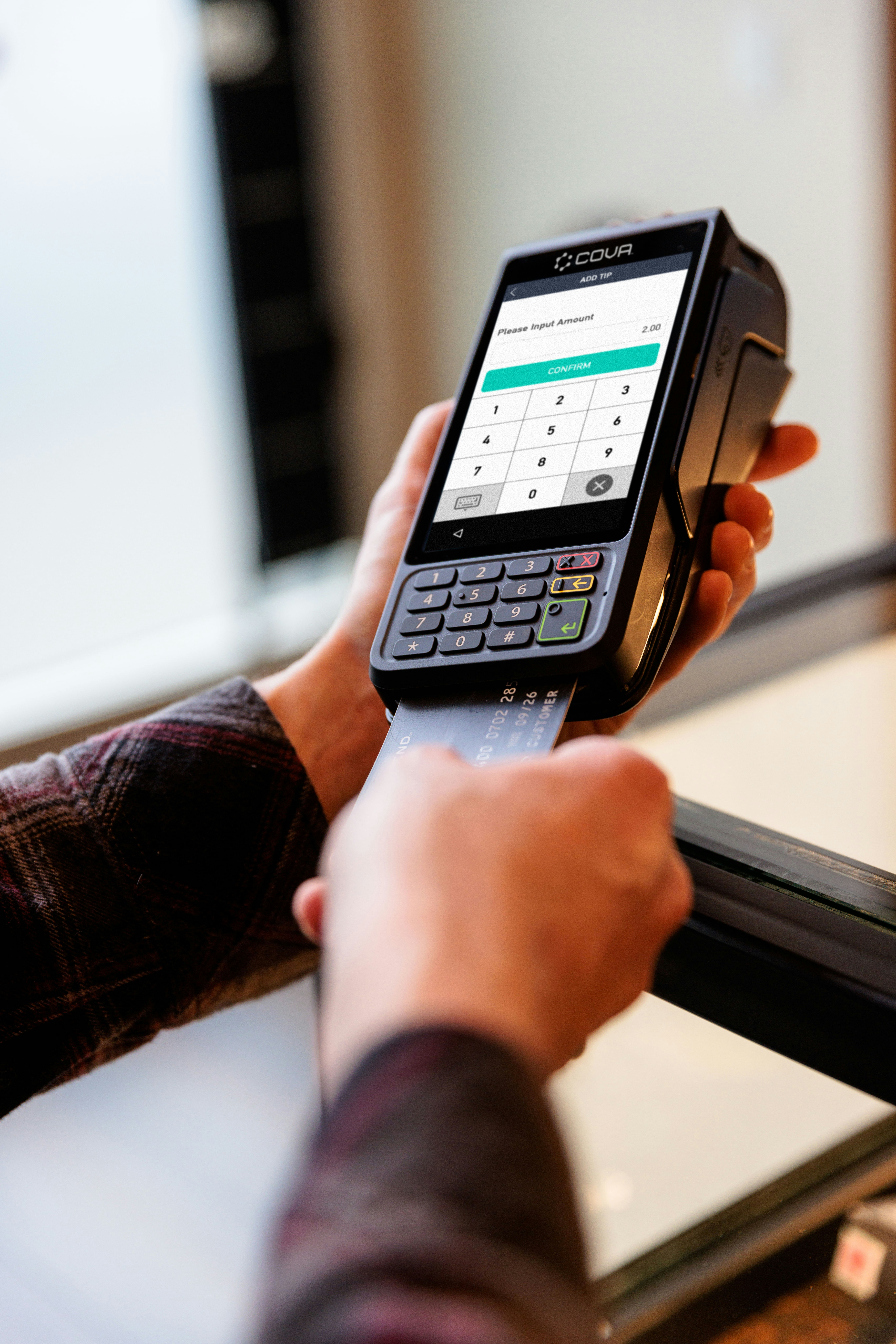Unified Payment Interface ( UPI )
Unified Payment Interface ( UPI )
UPI RULE CHANGES FROM AUGUST 1, 2025
05.08.2025 : There are significant changes to UPI rules that have come into effect from August 1, 2025. The National Payments Corporation of India (NPCI) introduced these new guidelines to improve the stability and efficiency of the UPI system, especially during peak hours, and to enhance user security.
FEE STRUCTURE CHANGES FROM August 1, 2025 :
Based on recent reports, here’s a summary of the fee structure changes on UPI payments, effective from August 1, 2025:
For Customers:
- Peer-to-Peer (P2P) and Peer-to-Merchant (P2M) transactions using your bank account remain completely free. This means that sending money to another person or paying a merchant by scanning a QR code or entering their UPI ID will not incur any charges for you as a user.
- The “interchange fee” of up to 1.1% on transactions above ₹2,000 made using a Prepaid Payment Instrument (PPI) like a digital wallet (e.g., PhonePe Wallet, Paytm Wallet) is not paid by you, the customer. This fee is borne by the merchant.
For Payment Aggregators and Banks:
- Some banks, like ICICI Bank, have begun charging payment aggregators a fee for processing UPI transactions. This is a significant development. The fee is a small percentage (e.g., 2 basis points, capped at ₹6 per transaction) and is applied to payment aggregators that facilitate UPI payments for merchants.
- This fee is a response to the growing cost for banks to maintain and scale the UPI infrastructure, which processes billions of transactions a month with very little revenue. Other banks, such as Yes Bank and Axis Bank, have also implemented similar charges.
- The government continues to subsidize the UPI system, but there is a growing consensus that the cost of running it needs to be shared more widely to ensure its long-term sustainability.
Other Rule changes :
- Daily Limits on Balance Checks: You can now perform a maximum of 50 balance inquiries per UPI app per day. To compensate, your updated account balance will be displayed automatically after every successful transaction.
- Restrictions on UPI Autopay: Recurring payments (for subscriptions, bills, etc.) will now be processed only during non-peak hours to reduce system load. Peak hours are defined as 10:00 AM to 1:00 PM and 5:00 PM to 9:30 PM. Each autopay mandate is also limited to a total of four attempts (one initial attempt and up to three retries).
- Limits on Checking Linked Accounts: The “List Account” API, which allows you to view the bank accounts linked to your mobile number, is now limited to 25 requests per customer per app per day.
- Transaction Status Checks: If a transaction is pending, you can now check its status a maximum of three times, with a mandatory 90-second gap between each attempt.
- Recipient Name Verification: Before you confirm a payment, the recipient’s registered name will be displayed along with their transaction ID to help prevent accidental transfers and fraud.
- Stricter Bank Account Verification: New bank accounts added to UPI will undergo enhanced verification and authentication checks.
- Inactive UPI ID Deactivation: Any UPI ID linked to a mobile number that has been inactive for more than 12 months will be automatically disabled to prevent misuse if the number is reassigned.
These changes are aimed at reducing server strain, improving transaction success rates, and enhancing user safety.
HOW TO GET UPI APPLICATION ?
The UPI app of member banks are available on the Google Play Store of Android phones and APP STORES for i-phones .
HOW TO GET STARTED ON UPI ?
1. Download an UPI app of a member bank from Play Store and install in phone;
2. Set app login3. Create virtual payment address ( “Virtual Payment Address” is an identifier that can be uniquely mapped to an individual account using a translation service.4. Add your bank account ( you can add multiple accounts with member banks )
5. Set M-Pin 6. Start transacting using UPI
Tips for secured use of UPI SYSTEM
The system can be used by any account holders having smart phones . However certain precautions are to be taken for safeguarding the account .
. Here is a list of safety precautions 1. Keep your account number private
2. Make sure your devices and networks are secure3. Keep your passwords secret
4. While making remittances , note to correctly type the VPA address of the beneficiary . Beneficiary can immediately withdraw the money so received . Hence it may be difficult to recover from a wrong beneficiary 5. Have a tab on your account . Check often
BENEFITS OF UPI PAYMENT SYSTEM :
1. Immediate money transfer through mobile device round the clock 24*7 and 365 days. 2 . Single mobile application for accessing different bank accounts. 3. Virtual address of the customer for Pull & Push provides for incremental security with the customer not required to enter the details such as Card no, Account number; IFSC etc. 4 . Bill Sharing with friends. 5. Best answer to Cash on Delivery hassle, running to an ATM or rendering exact amount. 6. Merchant Payment .Utility Bill Payments, Over the Counter Payments, Barcode (Scan and Pay) based payments.Donations, Collections, Disbursements Scalable.
Note : 1. UPI allows a customer to pay directly from a bank account to different merchants, both online and offline, without the hassle of typing credit card details, IFSC code, or net banking/wallet passwords. 2. It is safe as the customers only share a virtual address and provide no other sensitive information like account number , credit card details etc .
3. With UPI , you can simply need to enter your details , get billing details on your phone and which you can accept or reject
straight away . 4. The service is instant and available 24X7, even on public/bank holidays.
UPI TRANSACTION LIMIT : UPI has set a general transaction limit of Rs 1 Lakh except for the following transactions :
Capital Markets (AMC, Broking, Mutual Funds, etc.), Collections (Credit card payments, Loan re-payments, EMI), Insurance etc. Limit ₹2 lakh.
Retail Direct Scheme and for IPO subscription Limit ₹5 lakh.
Hospitals and educational institutions Limit ₹5 lakh per transaction.
Tax payments – Limit ₹5 lakh.
However individual banks have set their own individual transaction limit and daily limit or weekly limit within the limit set by UPI
LIST OF MEMBER BANKS OF UPI :
1. Allahabad Bank
2. Andhra Bank 3. Axis Bank
4. Bank of Baroda 5. Bank of India
6 Bank of Maharashtra 7. Bhartiya Mahila Bank
8. BNP Paribas 9 Canara Bank
10. Catholic Syrian Bank11. Central Bank of india
12. Citi bank 13.Corporation Bank
14. Dena Bank 15. DCB Bank
16. Dhanalakshmi Bank17. Federal Bank
18. HDFC Bank 19. HSBC
20. ICICI Bank21. IDBI Bank
22. Indian Bank23.Indian Overseas Bank
24. Indusind bank 25 . Jammu & Kashmir Bank
26.Karnataka Bank27. Karur Vysya Bank
28. Kotak Mahindra Bank29. Lakshmi Vilas Bank
30. Oriental Bank of Commerce31. Punjab & Sind Bank
32. Punjab National Bank33. Ratnakar bank
34. South Indian Bank35.Standard Chartered Bank
36. State Bank of Bikaner & Jaipur37. State Bank of Hyderabad
38. State Bank of india 39. State Bank of Mysore
40.State Bank of Patiala 41. State Bank of Travancore
42. Syndicate Bank 43.Tamilnad Mercantile bank
44. UCO Bank45. Union Bank of India
46. United Bank of India47. Vijaya Bank
48. YES Bank 49. Bandhan bank
( To reach websites of the above banks , CLICK HERE )
For the latest list of member banks CLICK HERE
Introduction of Delegated Payments through UPI :
09.08.2024 : The Unified Payments Interface (UPI) has a very large user base of 424 million individuals. In order to further expand the user base, Reserve bank of India has proposed to introduce “Delegated Payments” in UPI. “Delegated Payments” would allow an individual (primary user) to set a UPI transaction limit for another individual (secondary user) on the primary user’s bank account. This product is expected to add to the reach and usage of digital payments across the country. Detailed instructions will be issued shortly.
Ref : RBI’S Statement on Developmental and Regulatory Policies dated 08.08.2024
UPI TRANSACTION LIMITS FOR TAX PAYMENTS – REVISION PLANNED :
Dated 08.08.2024 : Presently the transaction limit for UPI is capped at ₹1 lakh for tax payments through UPI . RBI has now proposed to enhance the limit for such tax payments from ₹1 lakh to ₹5 lakh per transaction. Separate instructions will be issued shortly by RBI to NPCI in this regard .
Ref : Governor’s Statement: August 8, 2024
UPI TRANSACTION LIMITS – REVISION PLANNED :
Dated 09.12.2023 : Presently the transaction limit for UPI is capped at ₹1 lakh, except a few categories like Capital Markets (AMC, Broking, Mutual Funds, etc.), Collections (Credit card payments, Loan re-payments, EMI), Insurance etc. where the transaction limit is ₹2 lakh. In December 2021, the transaction limit for UPI payments for Retail Direct Scheme and for IPO subscriptions was increased to ₹5 lakh.
To encourage the use of UPI for medical and educational services, RBI has now proposed to enhance the limit for payments to hospitals and educational institutions from ₹1 lakh to ₹5 lakh per transaction. Separate instructions will be issued shortly by RBI to NPCI in this regard .
Ref : RBI’S Statement on Developmental and Regulatory Policies dated 07.12.2023
Conversational Payments on UPI :
Dated 10.08.2023 : The payments that are processed during. a on-line chat like whatsapp , facebook messaging etc are called conversational payments . The payment happens during a live chat using artificial intelligence .
Mr shaktikanta Das , Governor of RBI , today announced the introduction of new features on UPI payment systems including conversational payments.
Text of his announcement is as follows :
” UPI, with its ease of usage, safety and security, and real-time feature, has transformed the digital payment ecosystem in India. Addition of many new features over time have enabled UPI to facilitate diverse payment needs of the economy.
As Artificial Intelligence (AI) is becoming increasingly integrated into the digital economy, conversational instructions hold immense potential in enhancing ease of use, and consequently reach, of the UPI system. It is, therefore, proposed to launch an innovative payment mode viz., “Conversational Payments” on UPI, that will enable users to engage in a conversation with an AI-powered system to initiate and complete transactions in a safe and secure environment.
This channel will be made available in both smartphones and feature phones-based UPI channels, thereby helping in the deepening of digital penetration in the country. The facility will, initially, be available in Hindi and English and will subsequently be made available in more Indian languages. Instructions to NPCI will be issued shortly. ”
Other features announced are. relating to Offline payments in UPI :
INCREASE IN PER TRANSACTION LIMIT :
A limit of ₹200 per transaction and an overall limit of ₹2000 per payment instrument has been prescribed by the Reserve Bank for small value digital payments in offline mode including for National Common Mobility Card (NCMC) and UPI Lite. By removing the need for two-factor authentication for small value transactions, these channels enable faster, reliable, and contactless mode of payments for everyday small value payments, transit payments etc. Since then, there have been demands for enhancing these limits. To encourage wider adoption of this mode of payments and bring in more use cases into this mode, it is now proposed by RBI to increase the per transaction limit to ₹500. The overall limit is, however, retained at ₹2000 to contain the risks associated with relaxation of two-factor authentication. Instructions in this regard will be issued shortly.
To increase the speed of small value transactions on UPI, an on-device wallet called “UPI-Lite” was launched in September 2022 to optimise processing resources for banks, thereby reducing transaction failures. The product has gained traction and currently processes more than ten million transactions a month. To promote the use of UPI-Lite, it is proposed to facilitate offline transaction using Near Field Communication (NFC) technology.
UPI LAUNCHES NEW THREE INITIATIVES
Dated 22.09.2022 : Reserve Bank of India (RBI) Governor, Mr. Shaktikanta Das in the presence of Mr. Nandan Nilekani, Chairman Infosys and Advisor to NPCI, and Mr. Biswamohan Mahapatra, Chairman NPCI launched on 20.09.2022 , the three key initiatives from the dais of the Global Fintech Fest 2022 held in Mumbai, Maharashtra . They are a. RuPay Credit Card on UPI,
b. UPI LITE,c. Bharat BillPay Cross-Border Bill Payments.
RUPAY CREDIT CARD ON UPI : RuPay Credit Cards will be linked to a Virtual Payment Address (VPA) i.e. UPI ID, thus directly enabling safe, and secure payment transactions. The initial phase of operationalisation will be centred on extracting actionable learnings that would be used to fine-tune the proposition in later phases to scale up the usage. Customers of Punjab National Bank, Union Bank of India, and Indian Bank will be the first to be able to use RuPay Credit Card on UPI with BHIM App.
UPI LITE : UPI Lite will provide users with a convenient solution for faster and simpler low-value transactions. At present, India is thriving on low-value UPI payments with 50% of transactions through UPI below ₹200. With UPI Lite enabled on BHIM App, users will be able to make small-value transactions in a near-offline mode. UPI Lite will reduce the debit load on the core banking system, thereby improving the success rate of transactions further, enhancing the user experience, and taking us one step closer to processing a billion transactions a day on the UPI platform. The upper limit of a UPI Lite payment transaction will be ₹200 while the total limit of UPI Lite balance for an on-device wallet will be ₹2,000 at any point in time. Eight banks are live with the feature including Canara Bank, HDFC Bank, Indian Bank, Kotak Mahindra Bank, Punjab National Bank, State Bank of India Union Bank of India and Utkarsh Small Finance Bank.
BHARATBILLPAY CROSS-BORDER PAYMENTS : Bharat BillPay Cross-Border Bill Payments was also launched on the smae day and it willmake bill payments easier for people residing out of India but also maintaining a house in India. With more than 30 million Indians staying abroad, India is one of the top 5 biggest recipients of inward remittances. Bharat BillPay Cross-Border Bill Payments facility will empower and enable Non-Resident Indians (NRIs) to undertake utility, water, and telephone-related bill payments on behalf of their families in India. Federal Bank with UAE’s Lulu Exchange will be the first to go live with Bharat BillPay Cross-Border Bill Payments
To read NPCI Press release on the event , CLICK HERE
RBI LAUNCHES UPI FOR FEATURE PHONES
Dated 09.03.2022 : At present, efficient access to UPI is available on smart phones. UPI can be accessed through NUUP (National Unified USSD Platform) using the short code of *99#. But this option is cumbersome and not popular. Considering that there are more than 40 crore feature phone mobile subscribers in the country ( called basic mobile phones ) , the Reserve Bank has launched UPI123Pay – Option to make Unified Payments Interface (UPI) payments for feature phone users . UPI123pay will materially improve the options for the feature phone users to access UPI. UPI123Pay includes four distinct options as below:
App-based Functionality: An app would be installed on the feature phone through which several UPI functions, available on smartphones, will also be available on feature phones.
Missed Call: This will allow feature phone users to access their bank account and perform routine transactions such as receiving, transferring funds, regular purchases, bill payments, etc., by giving a missed call on the number displayed at the merchant outlet. The customer will receive an incoming call to authenticate the transaction by entering UPI PIN.
Interactive Voice Response (IVR): UPI payment through pre-defined IVR numbers would require users to initiate a secured call from their feature phones to a predetermined number and complete UPI on-boarding formalities to be able to start making financial transactions without internet connection.
Proximity Sound-based Payments: This uses sound waves to enable contactless, offline, and proximity data communication on any device.
Along with UPI123pay , RBI has also launched The 24×7 Helpline – ‘DigiSaathi’ . The service provides a channel to obtain help on the entire gamut of digital payments. Automated responses on information related to digital payment products and services are available in Hindi and English through multiple options like – (a) toll-free number (1800-891-3333), (b) a short code (14431), (c) website – www.digisaathi.info, and chatbots. DigiSaathi will assist users with their queries on digital payments via website & chatbot facility and through toll-free calls where user can dial or call out the options / products for which the information is required. More interactive options and language choices shall be enabled going forward.
It is hoped that the new initiative will help rural persons who are using a feature phone now to use UPI applications .
For RBI CIRCULAR IN THIS REGARD , CLICK HERE
UPI TO BE LINKED WITH SINGAPORE’S PAYNOW
Dated 16.09.2021 : Reserve Bank of India ( RBI ) has inked up a project with Monetary Authority of Singapore ( MAS ) whereby the two monetary authorities will collaborate to link their payment systems UPI ( United Payment interface ) and Paynow , the Singapore’s payment system . The linkage will enable the customers of the two systems to make instant, low-cost fund transfers on a reciprocal basis without a need to get onboarded onto the other payment system.
UPI is India’s mobile based, ‘fast payment’ system that facilitates customers to make round the clock payments instantly using a Virtual Payment Address (VPA) created by the customer. This eliminates the risk of sharing bank account details by the remitter. UPI supports both Person to Person (P2P) and Person to Merchant (P2M) payments as also it enables a user to send or receive money.
PayNow is the fast payment system of Singapore which enables peer-to-peer funds transfer service, available to retail customers through participating banks and Non-Bank Financial Institutions (NFIs) in Singapore. It enables users to send and receive instant funds from one bank or e-wallet account to another in Singapore by using just their mobile number, Singapore NRIC/FIN, or VPA.
Now with the linkage , funds can be transferred between the two countries in a fast manner with very small fee payable by the customers . The link is expected to be operationalized by July 2022 .
To read Press release of RBI , click here
NATIONAL PAYMENT CORPORATION OF INDIA (NPCI ) :
WHO IS NPCI ?
National Payments Corporation of India (NPCI), an umbrella organisation for operating retail payments and settlement systems in India, is an initiative of Reserve Bank of India (RBI) and Indian Banks’ Association (IBA) under the provisions of the Payment and Settlement Systems Act, 2007, for creating a robust Payment & Settlement Infrastructure in India.
Considering the utility nature of the objects of NPCI, it has been incorporated as a “Not for Profit” Company under the provisions of Section 25 of Companies Act 1956 (now Section 8 of Companies Act 2013), with an intention to provide infrastructure to the entire Banking system in India for physical as well as electronic payment and settlement systems. The Company is focused on bringing innovations in the retail payment systems through the use of technology for achieving greater efficiency in operations and widening the reach of payment systems.
For further details , CLICK HERE
DISCLAIMER
Use of the information at this site www.plannprogress.com is at one’s own risk. We do not offer to sell or solicit to buy any financial instruments including Deposits , Loans whether short term or otherwise , Mortgages , Stocks , Insurance or Mutual Funds .This site does not offer to sell or solicitation to buy any securities and we will not be liable for any losses incurred or investment(s) made or decisions taken/or not taken based on the information provided herein. Information contained herein are purely for educational purposes and does not constitute a personal recommendation or take into account the particular investment objectives, financial situations, or needs of individual investors. Before acting on any recommendation, investors should consider whether it is suitable for their particular circumstances and, if necessary, seek an independent professional advice.
Entry to this site is free of charge and we do not charge any fees what so ever . No need for registration for viewing the site . All content and information is provided on an ‘As Is’ basis by us. Information herein is believed to be reliable, but does not warrant its completeness or accuracy and expressly disclaims all warranties and conditions of any kind, whether express or implied. As a condition to accessing http://www.plannprogress.com content and website, you agree to our Terms and Conditions of Use, Privacy policy & Disclaimer available on the links . The performance data quoted represents past performance and does not guarantee future results.
Articles/ Pages in this site contain advertisements and links to various third party sites / blogs as we have found articles therein interesting and useful and we believe reliable . Those links sites and advertisements may contain offer of sales or services of various kinds including financial services . We accept no responsibility for the accuracy , correctness and/or completeness of any information contained therein as we have not independently verified. The links and third party advertisements are governed by the privacy policy of those third party sites / blogs. We do not warrant or guarantee for any services or sales utilized therein . This site expressly disclaims all warranties and conditions of any kind, whether express or implied. However readers are advised to exercise their discretion in utilising / following any advice contained therein or utilizing any services or accepting their sales or any other offers and we do not take any responsibility what so ever.
The site is governed by Indian Laws and comes within the jurisdiction of courts in Mysuru , Karnataka , India
Contact Information : The site www.plannprogress.com is owned and operated by Mr . Manjunathan B.N. , No 37, 5thBlock , Madhuvana Layout , Sriramapura 2nd stage , Mysuru 570023 , Karnataka , India and can be contacted at email : info@plannprogress.com
Copyright © PlannProgress – All Rights are Reserved | Powered by PixelFlare
This website uses cookies to provide necessary site functionality and to improve your experience. By using this website, you agree to our use of cookies.




